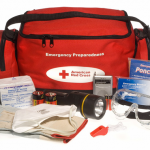Anonymous Was a Woman and New York Foundation for the Arts (NYFA) Announce 2023 Environmental Art Grants Recipients
$309,000 Awarded to 20 Projects Led by Women-Identifying Artists in the United States and U.S. Territories
Anonymous Was A Woman (AWAW) and The New York Foundation for the Arts (NYFA) have announced the recipients of the Anonymous Was A Woman Environmental Art Grants (AWAW EAG) program, which provides one-time grants of up to $20,000 to support environmental art projects led by women-identifying artists from the United States and U.S. territories. In the 2023 cycle, the second year of the program, a total of $309,000 in grant funding was awarded to 20 projects that will focus on environmental issues and advocacy in locations including Belize, Southern Iraq, Mongolia, New York, Pennsylvania, Tierra del Fuego, West Virginia, and Washington. The 20 projects were selected from 884 applications from artists who reside in the United States and U.S. Territories.
The projects span a range of media and activations including:
- Mika Rottenberg’s Reclaimed Plastic ‘Factory,” a regenerative factory in Tivoli, NY, that will create spaces and sculptures that both “nurture” the viewer and the environment.
- Alisha B Wormsley’s Children of NAN, a survival guide-as-film for future black femmes that examines Black womxn’s relationship to craft, land/space, and spirit.
- Ensayos Tierra del Fuego’s Humedales Olorosos | Odorant Wetlands, which aims to create a scent-based publication that expands access to the smell of peatlands—offering a somatic immersion into their carbon-capturing depths. The project builds on one that was hosted by the Venice Biennale in 2022.
- Emily Johnson’s Build And Reworld Now, a land-based project in Lenapehoking and Haudenosaunee Nation Lands, NY, that focuses on the physical reclamation of land/space for Indigenous, Black, Latinx, and other artists/activists/land defenders.
- Diana Thater’s Kazakh (The Altai Mountains, Mongolia), a large-scale video installation featuring young girls who are training to hunt with Golden Eagles. A centuries-old tradition of hunting with Golden Eagles is being kept alive by these hunters, and, increasingly, young women and girls are being taught to hunt with eagles.
The AWAW EAG program supports environmental art projects that inspire thought, action, and ethical engagement. The intended impact of the project was an important factor in the selection process. The applications were reviewed by an esteemed panel comprising Mary Mattingly, artist; Jessi Mueller, registered architect and Director of Exhibitions at Counterpublic; jina valentine, artist and educator; Monique Verdin, artist and director of The Land Memory Bank & Seed Exchange; Minoosh Zomorodinia, interdisciplinary artist, documentruan, and Co-Chair of Women Eco Artists Dialog.
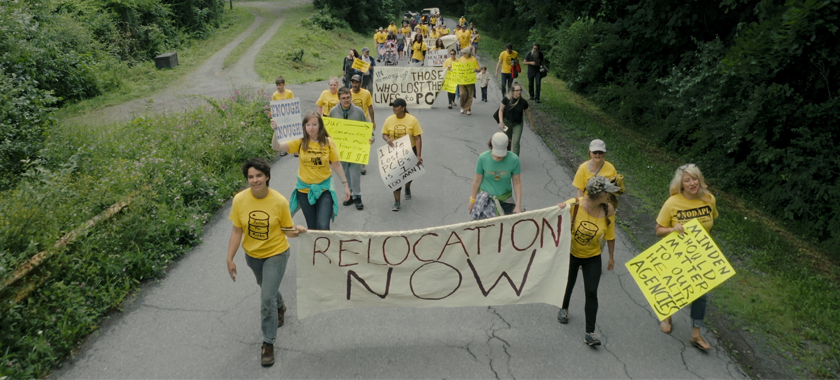
Since 1996, AWAW has dedicated $250,000 each year to unrestricted grants of $25,000 to 10 artists, honoring women-identifying artists over the age of 40. In 2022, AWAW matched the $250,000 for the inaugural year of the AWAW EAG. The $309,000 awarded through the AWAW EAG in 2023 demonstrates increased support for myriad artistic projects, led by women-identifying artists, addressing critical environmental issues across the United States and U.S. territories.
“Events of the past few months alone have made it undeniably clear that climate change is an urgent and ongoing crisis—the world is literally on fire. At the same time, the enormous response to this grant is proof that artists are eager to confront the practical and existential crises of our current moment. This kind of work deserves much more attention and resources, far beyond what we can support through the EAG. A study from the University of Wisconsin recently found that using art to convey climate change data is more effective at communicating environmental impacts and motivating change than the data alone. I hope that the projects that are supported by this grant can help to change attitudes and inspire action, and am heartened by the growing awareness of the importance of art in climate initiatives,” said Susan Unterberg, founder of Anonymous Was A Woman.
“We are proud to partner with Anonymous Was A Woman to administer the Environmental Art Grants program,” said Michael Royce, CEO, NYFA. “The support this program offers, to women-identifying artists working at the intersection of art and the environment, is needed now more than ever as we work towards a more sustainable, equitable future where we learn, grow, mitigate, and adapt in the face of great existential challenges. We look forward to seeing these projects be realized and to the change they help to inspire.”
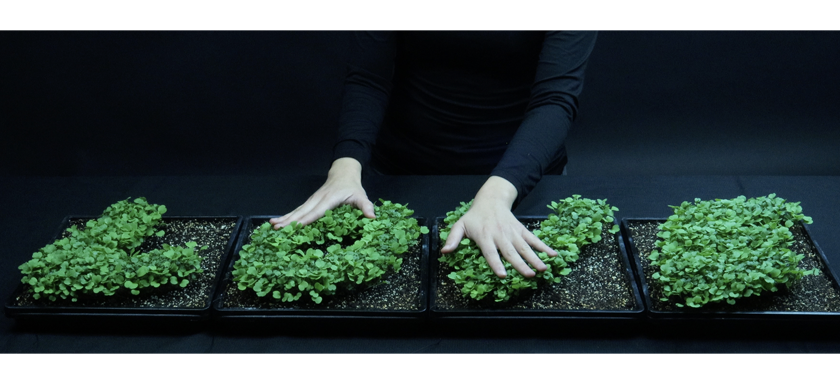
Each of the selected projects will have a public engagement component which will be completed by June 2024. See below for more on each of the selected projects:
Nehprii Amenii of Khunum Productions will present HUMAN (Brooklyn, NY), a 60-minute puppetry-based multimedia stageplay for multi-generational audiences that asks what it really means to be HUMAN? The premise is as follows: Now that Humans are extinct and the world as we knew it has ended, the Octopus has a decision to make… Will it be willing to give up one of its three hearts in order to create a new, more sensitive human being? Will it be willing to give humanity a second chance?
Artist Sol Aramendi and Curator Sara Angel Guerrero-Mostafa’s Migrant Forest School (MFS) – Escuela Migrante del Bosque (Ellenville and New York, NY) provides a space for migrants to integrate ancient and modern indigenous practices into their lives for greater impact on environmental and human living conditions. It offers tools for re-thinking an immigrant future, where immigrant women will learn how to teach others about the social, economic, and ecological value of embracing Latin American forest traditions.
Ensayos Tierra del Fuego’s Humedales Olorosos | Odorant Wetlands (Chicago, IL/Tierra del Fuego) aims to create a scent-based publication that expands access to the smell of peatlands—offering a somatic immersion into their carbon-capturing depths. The project is born out of the work of Ensayos Tierra del Fuego, a collective founded in 2010 that exists in multiple pods and continents where collaborators conduct peatland research and support peatland conservation. This particular piece of Ensayos is a continuation of work conducted for “Turba Tol Hol-Hol Tol,” a multisensory immersion into peatlands hosted by the Venice Biennale in 2022.
Maryam Monalisa Gharavi’s Oil Research Group (ORG) (New York, NY) investigates two environments contiguously: oil, the world’s most important non-renewable resource, and data, the information environment that fertilizes the production of shared meaning. Oil, the world’s most important non-renewable resource, lies at the center of ecological peril and financial oppression. Data is definitionally infinite, yet the extractive logic of the algorithm renders it dependent on human labor as supply.
Meg Griffiths’ Impossible Town (Minden, WV) is a feature-length documentary about one woman’s quest to save a toxic West Virginia town. When her father dies unexpectedly, Dr. Ayne Amjad is thrust to the helm of a decades-long struggle to aid Minden, a southern West Virginia town beset by cancer-causing chemicals. Ayne is caught between her dream of raising a family and an audacious but all-consuming plan to relocate the town and bring closure to her father’s work.
Susie Ibarra’s Floating Gardens (Ulster County and Greene County, NY) are sonic sculptures and sonic habitats inspired by biodiversity on earth and inspired by Thich Nhat Hanh’s writing on deep ecology which he states “True Love Heals.” The work is a reflection on the statistic that approximately 2.5 percent of the earth’s land has intact biodiverse habitats that support more than half of the world’s plant species and just under half of the bird, mammal, and reptiles species as endemics, not found anywhere else. Inspired by this, Floating Gardens are sounding sculptures that are light, have movement, and resonate gently, offering an entry into a sensory experience that connects with the habitats.
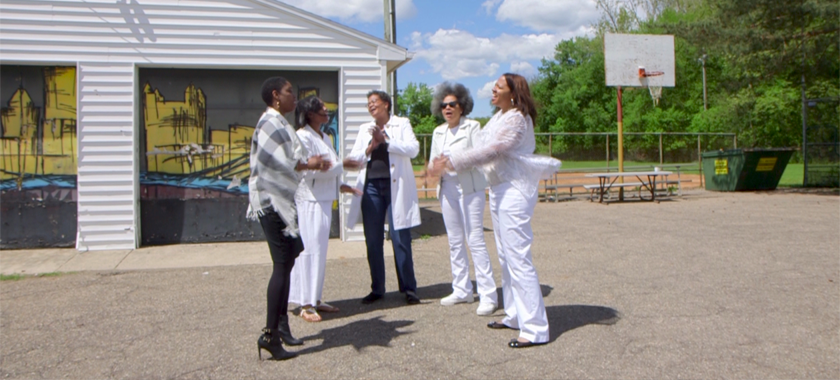
Emily Johnson’s Build And Reworld Now: Land Back Conference and Community Celebration (Lenapehoking and Haudenosaunee Nation Lands, NY) is a new land-based project focused on the physical reclamation of land/space for Indigenous, Black, Latinx, and other artists/activists/land defenders. With support from AWAW, Johnson will focus on the community participation and public engagement phase of creating Build And Reworld Now, a process central to both the project’s goals and its formulation. This will include a Land Back Conference that gathers invited community members who will guide the development of Build And Reworld Now to support the front lines of art, environment, and justice battles.
Rebekah Joy’s FLUX BENE 10k Garment Project (Pittsburgh, PA) is a sustainable art project focused on creating zero-waste, gender neutral clothing. All pieces are one-of-a-kind and include textile art like screen printing, hand dyeing, quilting, and embroidery. The 10K Garment Project aims to facilitate the reuse of 10,000 garments through developing and publishing zero-waste sewing patterns that empower home stitchers to upcycle their own clothing.
Sarah Kavage’s Weaving the River (working title; Seattle, WA) will create restorative living willow sculptures along Seattle’s Duwamish River with crews from DirtCorps, a green jobs training program and environmental restoration business. Staked into the ground, willow cuttings grow vigorously, preventing erosion and creating a habitat for fish, birds, and other creatures. As the artwork grows, it will contribute to the restoration of the Duwamish River, which has been subject to industrial development and pollution, dredging, and erasure since the early 1900s and is now in the process of a multi-decade Superfund cleanup.
Nyasha Laing’s Fairweather Wilds (Washington, DC; New York, NY; and Belize River Valley), an immersive documentary inspired by engineer, town planner, and descendant of Black land pioneers “Mahogany Man” Henry Fairweather’s vision to save Belize’s mahogany rainforest and reclaim the lost heritage of his forefathers—who planted their way to freedom. Through the resurrection of a complex ancestral inheritance, the film explores the relationships between heritage, race, national pride, and environmental resilience in Belize.
Jaclyn Fawn Mendez’s Rez Dayze (Akwesasne Reservation, NY) is a graphic multimedia romantic comedy illustrating next gen Indigenous Creation heroes navigating through colonial forces to save their Rez from encroaching land development projects. To ensure the future of their rez and community, these next gen heroes must harness their ancestral powers to rise above their primal tendencies. Rez Dayze will employ its charming cast to address the impacts of energy extraction companies in Native communities, food sovereignty, blood quantum, and sexual liberation.
Hye Yeon Nam’s Ec(h)o (Baton Rouge, LA) is a generative musical installation that explores interspecies relationships between humans, non-humans, and nature. Ec(h)o uses robotic 3D printing of plants from seed to translate our memories from the community into living sculptures and back to the sound with touch interactions. This work evokes how entangled our relationship with the environment has become, and encourages a perspective shift from individualism and exceptionalism towards an inclusive ecology.
Not An Alternative’s We Refuse to Die (Pittsburgh, PA, and locations in southwest PA and the Ohio River Valley; King County, WA; and locations along the Texas and Louisiana Gulf South) is a multi-year, multidisciplinary, community-engaged artistic response to the ecological and public health harms caused by fossil fuel industries that disproportionately impact Black, Latinx, Indigenous and poor white communities. Incorporating visual art produced for both museum and outdoor exhibitions, in-person and online events, and opportunities for people to gather within and across communities, We Refuse to Die pushes back against the dominant representation of so-called “sacrifice zones” as sites of powerlessness and victimization.
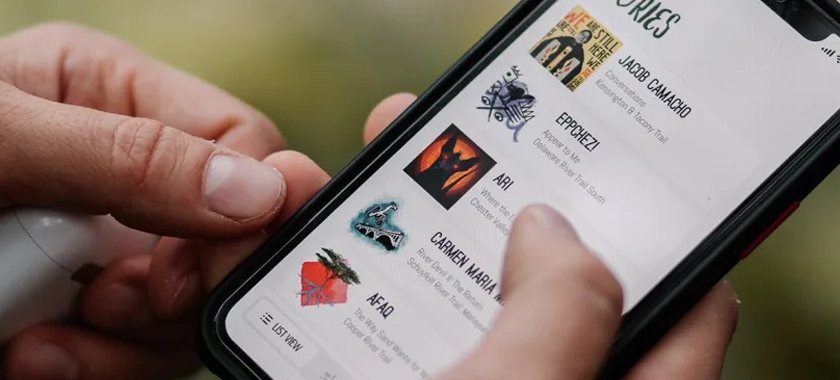
Mika Rottenberg’s Reclaimed Plastic ‘Factory’ (Tivoli, NY) will produce small sculptures, public fountains and gardens, and unique furniture using reclaimed processed plastic and invasive vines found in forests in Upstate New York, as well as be a local space for artists and designers to experiment with the possibilities of recycled plastics. Inspired by circular economics, this regenerative factory will create spaces and sculptures that both ‘nurture’ the viewer and the environment.
Meridel Rubenstein’s Eden in Iraq Wastewater Garden Project: Inanna Returns to the Marshes as a Mosaic (El-Chibayish, Southern Iraq) will bring ceramic relief tiles referencing Inanna, the Mesopotamian Goddess of Flood and Fertility, to the three main arched entrances of the Eden in Iraq Wastewater Garden in Southern Iraq. Rubenstein imagines the feminine earth-based tile imagery helping to mitigate the 20 year-old effect of the US war effort in Iraq, like the garden flora cleaning waste.
Lauren Shapiro’s The Blue Horizon Project (Miami, FL) is a community-driven public sculpture crafted from ceramic corals replicated from 3D scans, highlighting Miami’s ecological challenges and promoting collective action. Shapiro sources the 3D coral models globally from scientific databases and her own scuba excursions, using digital fabrication techniques to capture their essence in friezes and reliefs. Her project offers an environmental perspective on traditional monuments, symbolizing an alternative future where endangered ecosystems flourish.
Swim Pony’s TrailOff: Diversifying Trails Through Storytelling (Philadelphia, PA) is an immersive audio app that embeds stories by marginalized writers onto nature trails.The app features original stories written by BIPOC and LGBTQIA+ authors and uses GPS triggering to magically unfold an experience around users as they walk. Funds from the AWAW EAG grant will get TrailOff out to a wider audience, with a major community engagement initiative targeting populations that have geographic and demographic overlaps with its stories and trails.
Diana Thater’s Kazakh (The Altai Mountains, Mongolia) is a large-scale video installation featuring young girls who are training to hunt with Golden Eagles. The work will be filmed entirely on location in the Altai mountains in Mongolia and will focus on the nomadic people who live and hunt there. A centuries-old tradition of hunting with Golden Eagles is being kept alive by these hunters, and, increasingly, young women and girls are being taught to hunt with eagles.
Dawn Weleski’s Refuse Refuse (Unceded Oneida Nation Land; Earlville, NY) is an educational and theatrical radio series that dramatizes current and impending climate catastrophe in rural New York State. Broadcast from a mutual aid ambulance, Refuse Refuse will record survival skill share workshops and participatory climate collapse drama. Refuse Refuse is a working group of emergentCNY, a regional mutual aid network that collects and redistributes goods and services to people in Central New York while adapting to ever-emerging crisis.
Alisha B Wormsley’s Children of NAN: a Survival Guide (Pittsburgh, PA) is a film for future Black femmes that spans Black womxn’s relationship to craft, land/space, and spirit. It will feature a series of performed tutorials, rituals, survival strategies on various landscapes staged in a mobile set handcrafted by Wormsley. The set is mobile not just for convenience but as a signifier of our migrant relationship to land and landscape. Ancestrally adapting to weather, plant-life, water, and resources in every part of this country and beyond.
Find out about additional awards and grants here. Sign up for our free bi-weekly newsletter to receive announcements about future NYFA events and programs.



